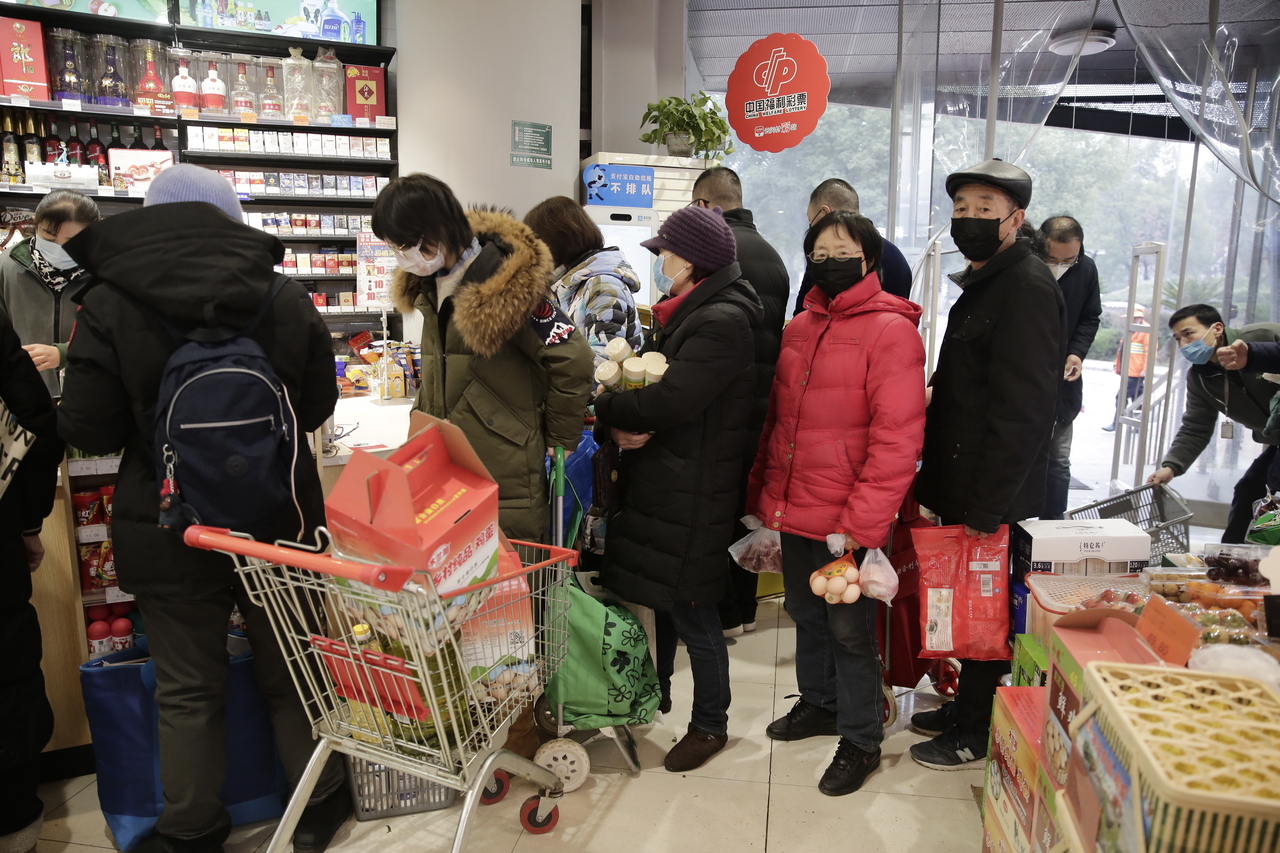Wuhan virus: China locks down five cities at epicentre of outbreak
Move to curb virus' spread across world comes as experts race to crack its code
Sign up now: Get insights on Asia's fast-moving developments

Residents queue up to buy groceries at a market as food prices soar due to the coronavirus outbreak in Wuhan City, on Jan 23, 2020.
PHOTO: EPA-EFE
China has taken the unprecedented move of locking down cities at the heart of a new Sars-like outbreak that has spread swiftly across provinces and the world, killing at least 17 and infecting more than 630.
In a dramatic effort to curb the sweep of the mutating virus, officials in Wuhan announced at midnight on Wednesday that the city, where the mystery coronavirus originated last month in a wet market that sold live animals, was being sealed off.
Last night, the authorities in the surrounding cities of Huanggang, Ezhou, Chibi and Xiantao in the same Hubei province in central China also imposed travel restrictions. The toughest measures were taken in Huanggang, where the train station was shut, roads closed and bus and ferry services suspended. Hubei has borne the brunt of the outbreak, accounting for over 90 per cent of those infected.
As experts raced to crack the virus code, the city and provincial authorities battled day and night to deal with the fallout as the number of sick people overwhelmed hospitals and clinics at the epicentre.
Health officials fear the numbers will soar as more travel home and abroad during the annual Chinese New Year break today and in the coming week. The authorities in Huanggang, a city of seven million, shut indoor entertainment venues like cinemas and Internet cafes, and ordered residents to wear face masks.
All over the country, face masks and disinfectants have been sold out. Mask producers are keeping their factories open over the national holiday and offering their workers up to four times their wages to restock emptied shelves.
In the capital city of Beijing, the authorities announced the closure of the Palace Museum from tomorrow, citing nationwide efforts to contain the spread of the Wuhan virus. It did not say when the museum - the city's top draw - will reopen, but offered refunds for booked tickets.
Several large-scale Chinese New Year events were also called off in Beijing, including popular temple fairs that typically draw huge crowds.
As many as seven movies, all scheduled to be released during the Chinese New Year holidays, have had their launch dates shelved.
Yesterday, more provinces, territories and countries reported their first cases of infection: The western region of Xinjiang confirmed two, as did Gansu, while Jilin had one. Hong Kong and Vietnam had two cases each, while Singapore identified its first.
Three separate research teams are expected to begin work on developing potential vaccines against the virus, according to the Coalition for Epidemic Preparedness Innovations. The plan is to have clinical trials on at least one potential vaccine by June.
Scientists scrambling to uncover the source of the virus have said it could be from badgers, rats or snakes. Chinese researchers believe snakes are the most likely culprits, after analysing the virus' genetic profile. Eminent infectious disease expert Zhong Nanshan, who discovered the severe acute respiratory syndrome (Sars) in 2003, has also said badgers and rats could be potential sources.
Chinese stocks took their most severe beating in eight months yesterday, suffering a 3.04 per cent loss as investors became nervous about the outbreak.
Meanwhile, a World Health Organisation expert panel met again last night, after delaying its decision on whether to declare the outbreak a global emergency.


